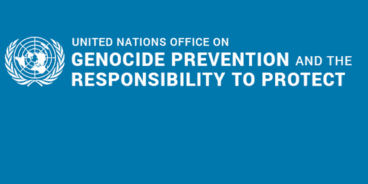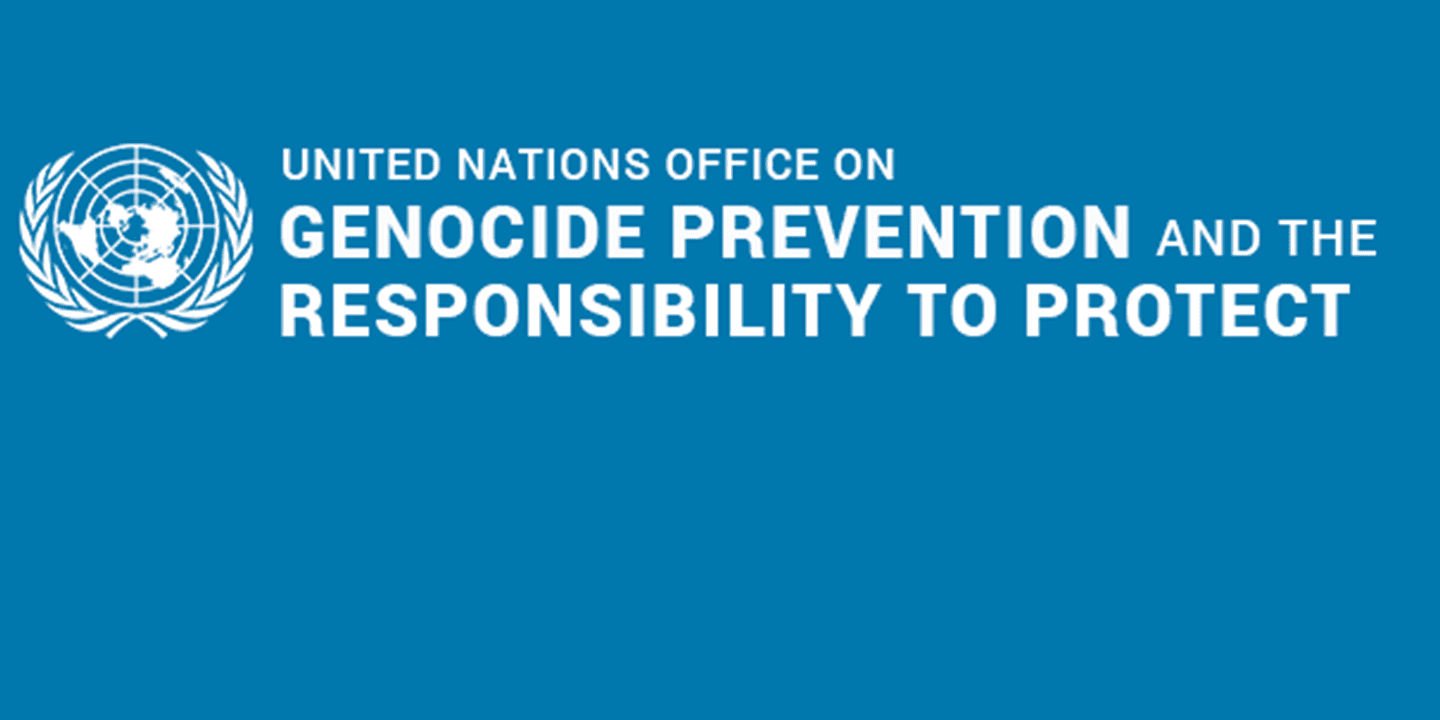

Statement by Ms. Alice Wairimu Nderitu, United Nations Special Adviser on the Prevention of Genocide, on the renewed escalation of violence in Darfur, Sudan
The United Nations Under- Secretary-General and Special Adviser on the Prevention of Genocide, Alice Wairimu Nderitu, remains highly alarmed at the renewed escalation of fighting between the Sudanese Armed Forces (SAF) and the Rapid Support Forces (RSF) and affiliated militias in Darfur over the past two weeks, particularly in Nyala, Geneina and Zalingei. The Special Adviser is extremely concerned at the serious allegations of mass killings in an area housing a camp for displaced families in Ardamata, Geneina, where more than 800 people were reportedly killed and 8,000 others fled to neighbouring Chad. The number of displaced could be much higher due to reports of RSF blocking displaced civilians from crossing into that country. Special Adviser Wairimu Nderitu is also alarmed at the reports of mass graves believed to contain the remains of members of the ethnic Masalit tribe in the area.
“The most recent developments in Ardamata and West Darfur constitute one more step in a cycle of violence that finds no end. Violence since the initiation of hostilities by the SAF and the RSF in April this year has amounted to at least 9,000 people reportedly killed and more than 5.6 million people displaced, including at least 1.2 million fleeing to neighbouring countries,” said the Special Adviser. “There is no stop in the fighting and no stop in the suffering. This horrific level of violence, with all the signs of atrocity crimes being committed, is not new in the country and is part of a cyclical process which has lasted for decades. It is essential that the world pays attention and responds. This must not become a forgotten crisis,” emphasized the Special Adviser.
The Special Adviser reiterates her strong condemnation of the appalling reports of grave human rights violations and abuses that continue being committed in the region and in the country, including identity-based killings, rape and other forms of sexual violence, torture, enforced disappearances, mass arrests and detention, bombings of civilian homes and infrastructures and lootings. A number of these attacks, if confirmed, may constitute acts of genocide, crimes against humanity and war crimes.
Special Adviser Wairimu Nderitu renews her urgent call upon all warring parties to ensure that civilians are protected, in full respect not only of international human rights and humanitarian law, but also of the commitment the parties adopted at the Jeddah Declaration of Commitment to Protect the Civilians of Sudan. The Special Adviser calls on all international, regional and national actors, including the African Union, the Intergovernmental Authority on Development and the United Nations Security Council, to expedite efforts to find a solution to the crisis. This also includes efforts by national actors in the context of the ongoing Jeddah and Juba peace talks.
“The latest reports from the Darfur region depict a deeply disturbing picture of continued systematic and indiscriminate attacks against civilians, including along ethnic lines, when the seven-month conflict has already seen a devastating number of deaths, injured and displaced persons. Current dynamics in the region could lead to further mass killings in an environment of complete lawlessness and impunity, The risks of genocide and related atrocity crimes in the region remain grimly high,” the Special Adviser stated. “While the commitment expressed on 7 November by the warring parties in Jeddah, Saudi Arabia to reaffirm their obligations to protect civilians and facilitate the delivery of humanitarian assistance constitutes a positive step, words must be urgently accompanied by actions. Vicious attacks against civilians must immediately and permanently cease.” Alluding to her previous statements of 8 September 2022, 3 November 2022, 13 June 2023 and 5 September 2023, the Special Adviser stressed that the violence, if unabated, could engulf the entire country, particularly amid the proliferation of illegal small arms and light weapons and the continuing clashes in the capital Khartoum, Kordofan and the Blue Nile states.
The number of the Sudanese refugees arriving in the neighbouring countries has dramatically increased following the renewed clashes. Thousands of civilians who remain in the country continue to be at a heightened risk of attacks. Access to food, water and health facilities also remains limited, including because of deliberate action by paramilitary groups and militias.
Recalling her October visit to refugee camps in Chad and her engagements with refugees from West Darfur in Farchana and Adré, the Special Adviser reiterated grave concerns about targeted attacks against members of the ethnic Masalit community by the RSF and their allied militias, allegedly perpetrated with an explicit intent to destroy the community. “The voices of victims speak loud and clear,” underlined the Special Adviser. “Men and boys of fighting age have reportedly been particularly targeted; rape and other forms of sexual and gender-based violence, including sexual slavery, have been rampantly perpetrated as a weapon of war; entire villages have been burnt, often with the plan to attack announced in advance; derogatory and dehumanizing language – such as ‘slaves’ – has been persistently used as an element of incitement to violence; conditions of life have been deprived, with medical facilities and transportation destroyed; and access to water and electricity deliberately obstructed. This all points to risk factors for genocide and related crimes.”
Special Adviser Wairimu Nderitu also emphasized the critical importance of accountability not only to address the crimes of the past but also to sow the seeds of prevention of future crimes. “Lack of accountability from what we saw twenty years ago in Darfur, which killed thousands of people and displaced millions, has created a fertile ground for the commission of further atrocity crimes. While the International Criminal Court continues its work, both national and international actors need to show perpetrators that their actions of today, committed across the country, some of which may amount to genocide and related atrocity crimes, will not go unpunished. All violations and abuses must be immediately investigated and accountability should be pursued. We cannot allow history to repeat itself.”
The Special Adviser also commended existing grassroots efforts by local religious and traditional leaders to bring people together and prevent inter-communal violence, and urged all international actors to spare no efforts in stabilizing the situation and protecting the populations at risk. Special Adviser Wairimu Nderitu also reiterated the importance of addressing hate speech and incitement to violence. In this respect, she appealed again to the religious leaders and other actors, both within the country and across the region, to speak out against hate and the incitement to violence, in line with the Fez Plan of Action for Religious Leaders and Actors to Prevent Incitement to Violence that Could Lead to Atrocity Crimes. Equally importantly, she called on tech and social media companies to assist in curbing the spread of incitement and hatred on their platforms, as stressed in the United Nations Strategy and Plan of Action on Hate Speech.
Related Content

